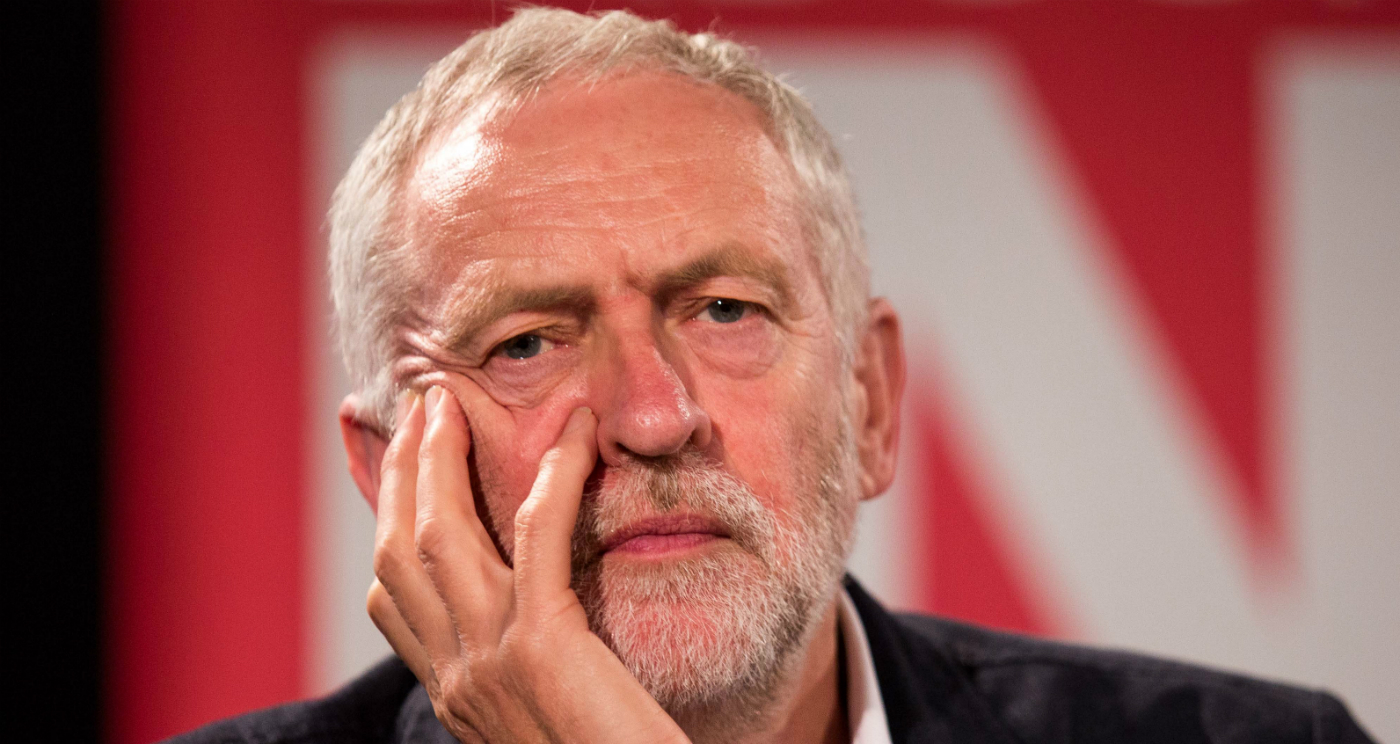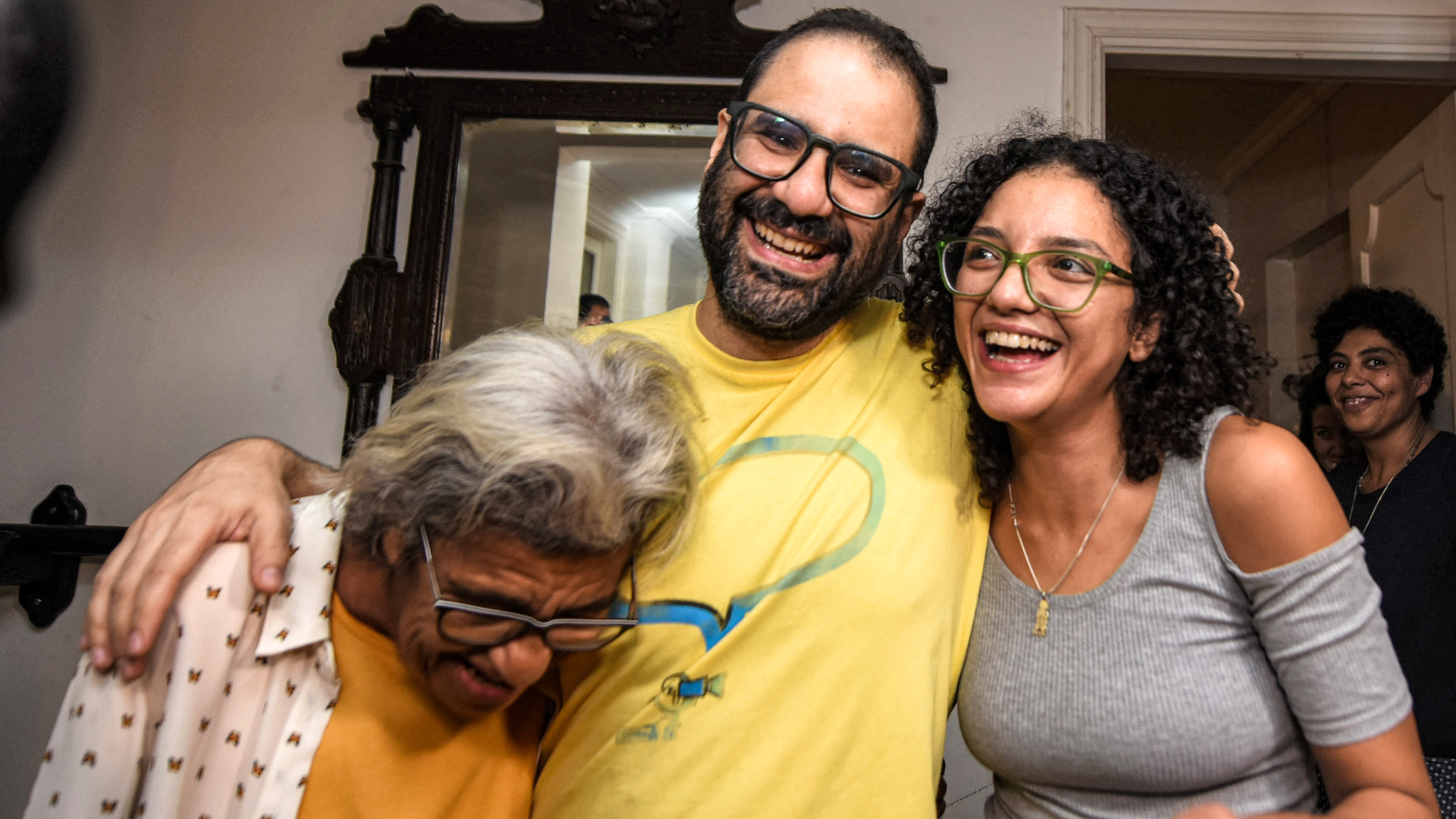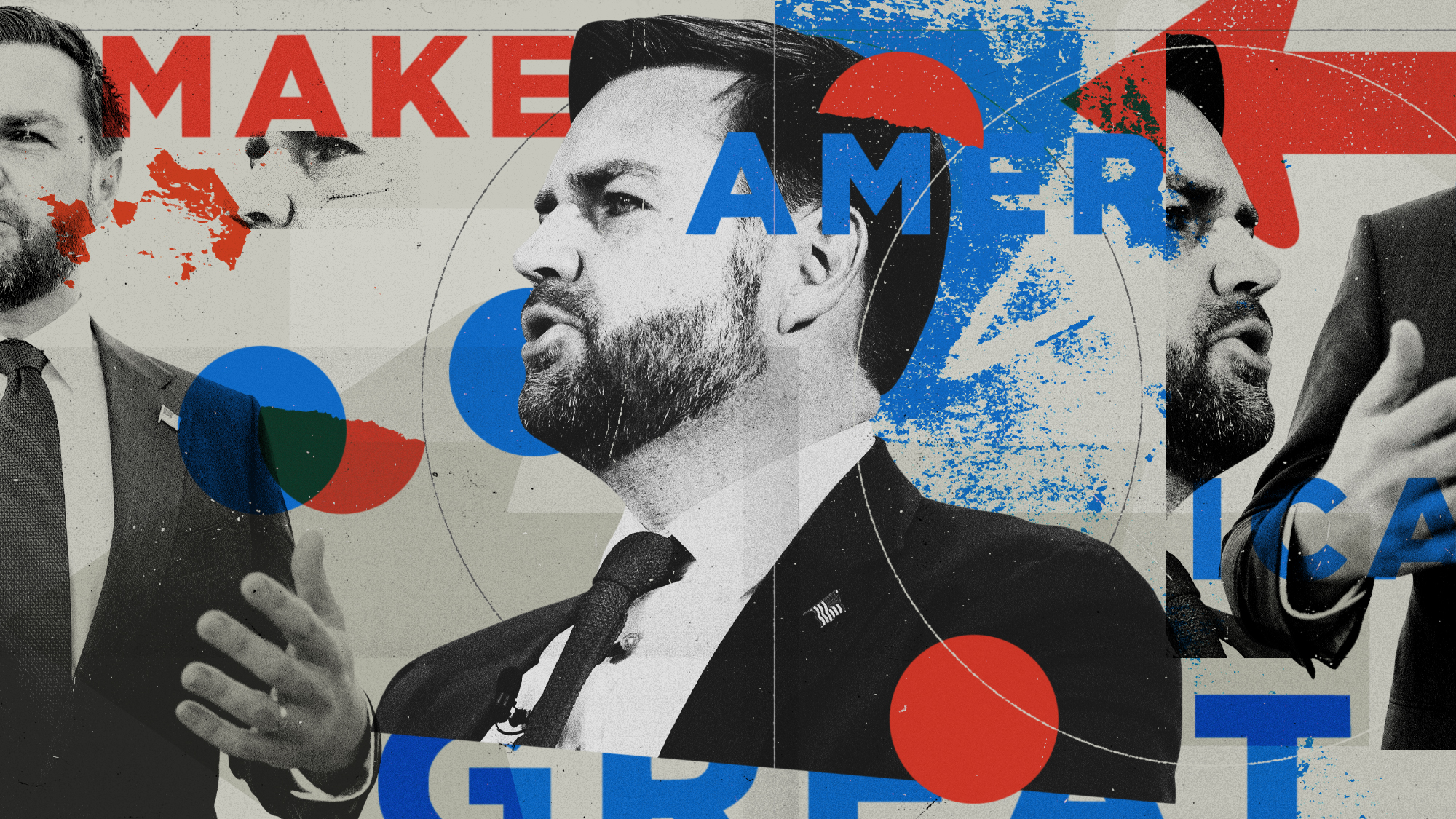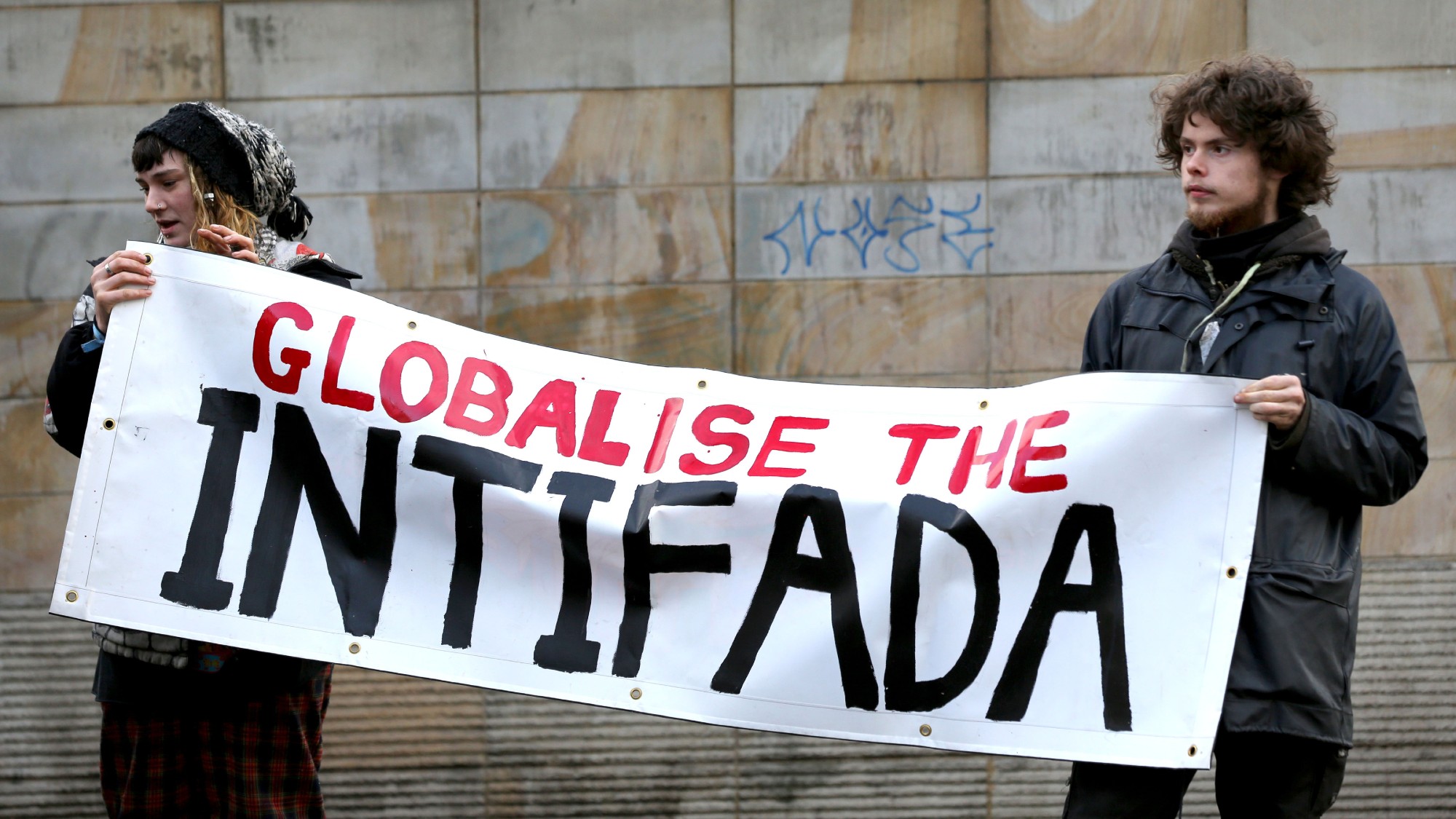Does Labour have an anti-Semitism problem?
UK’s chief rabbi publicly criticises party over handling of the issue

A free daily email with the biggest news stories of the day – and the best features from TheWeek.com
You are now subscribed
Your newsletter sign-up was successful
The UK’s Chief Rabbi has condemned the Labour leadership’s response to anti-Semitism accusations as “utterly inadequate”.
In an article for The Times, Ephraim Mirvis warns that “a new poison - sanctioned from the very top - has taken root” in the party, and claims “the overwhelming majority of British Jews are gripped by anxiety” over the prospect of a Labour government.
What else did the chief rabbi say?
The Week
Escape your echo chamber. Get the facts behind the news, plus analysis from multiple perspectives.

Sign up for The Week's Free Newsletters
From our morning news briefing to a weekly Good News Newsletter, get the best of The Week delivered directly to your inbox.
From our morning news briefing to a weekly Good News Newsletter, get the best of The Week delivered directly to your inbox.
Mirvis writes that his intervention “ranks among the most painful moments I have experienced since taking office”. But, he continues, “the way in which the leadership of the Labour Party has dealt with anti-Jewish racism is incompatible with the British values of which we are so proud - of dignity and respect for all people”.
The Jewish leader says that it is “not my place to tell any person how they should vote” but is urging the public to “vote with their conscience”.
Mirvis has been a persistent critic of Labour, reports the BBC, and celebrated Boris Johnson’s election as Tory leader in July this year. In a post on Facebook, Mirvin said: “I am delighted to congratulate Boris Johnson, a longstanding friend and champion of the Jewish community, on becoming the next leader of the Conservative Party and our next prime minister.”
How did the anti-Semitism row begin?
A free daily email with the biggest news stories of the day – and the best features from TheWeek.com
Since Corbyn’s election as leader, the party has been dogged by allegations and incidents of anti-Semitic conduct within its ranks.
In April 2016, Labour MP Naz Shah posted Facebook messages comparing Israel to Nazi Germany. Days later, former London mayor Ken Livingstone sparked further controversy by saying that Adolf Hitler had supported Zionism, during a BBC interview.
Then came the revelation that Corbyn had defended an anti-Semitic mural in London that the local council had wanted to remove back in 2012.
Responding to a public outcry over the various claims, Corbyn apologised for “pockets of anti-Semitism” in the party and commissioned the Chakrabarti inquiry.
This probe found that Labour was “not overrun by anti-Semitism” but did suffer from an “occasionally toxic atmosphere” and “too much clear evidence [of] ignorant attitudes”.
What has happened since?
In the aftermath of the first wave of allegations, Labour became embroiled in a row over whether to adopt the International Holocaust Remembrance Alliance (IHRA) 11-point definition of anti-Semitism. The party ultimately did so - but the controversy didn’t stop there.
Shortly before the decision was announced, leading human rights lawyer Geoffrey Robertson wrote in an opinion piece for The Times in which he argued that the IHRA definition was “not fit for the purpose and will chill legitimate criticism of the state of Israel”.
Robertson claimed that some of the 11 examples of anti-Semitism within the definition were so loosely drafted that they were “likely to deter criticism of action by the Israeli state and advocacy of sanctions as a means to deter human rights abuses in Gaza”.
That row came weeks after leaked audio emerged in which pro-Corbyn Labour veteran Peter Willsman - who swept the board in elections to the party's ruling National Executive Committee (NEC) - claimed “never to have seen” any signs of such anti-Jewish prejudice. He even suggested that the controversy had been stirred up by Israeli infiltrators.
Willsman's remarks “are particularly troubling because, like all members of the ruling executive, he sits on the disputes committee: if there is one group of people who should not be able to say with a straight face that they have never seen anti-Semitism in the Labour Party, it is the 39 members of the party's National Executive Committee”, the New Statesman’s Stephen Bush subsequently wrote.
Is the anti-Semitism controversy nearing an end?
It seems unlikely. Labour was struggling with fresh accusations of anti-Semitism prior to the chief rabbi’s intervention this week.
In May, the Equality and Human Rights Commission launched a formal investigation to determine whether Labour had “unlawfully discriminated against, harassed or victimised people because they are Jewish”.
Labour is only the second party to be investigated by the EHRC, after the British National Party. In 2010, the EHRC ordered the BNP to rewrite its constitution to comply with race relations laws after the party banned black and minority ethnic Britons from becoming members, reports The Guardian.
Labour is facing accusations of undermining the EHRC’s investigation after including a manifesto pledge to “enhance the powers and functions of the Equality and Human Rights Commission, making it truly independent”.
Jennifer Gerber, director of Labour Friends of Israel, this week said that the suggestion that the equality body was not independent was “extremely worrying”.
Corbyn insists Labour is tackling anti-Semitism by expelling members and has today launched a “race and faith manifesto” aimed at tackling prejudice.
-
 Why is the Trump administration talking about ‘Western civilization’?
Why is the Trump administration talking about ‘Western civilization’?Talking Points Rubio says Europe, US bonded by religion and ancestry
-
 Quentin Deranque: a student’s death energizes the French far right
Quentin Deranque: a student’s death energizes the French far rightIN THE SPOTLIGHT Reactions to the violent killing of an ultraconservative activist offer a glimpse at the culture wars roiling France ahead of next year’s elections
-
 Secured vs. unsecured loans: how do they differ and which is better?
Secured vs. unsecured loans: how do they differ and which is better?the explainer They are distinguished by the level of risk and the inclusion of collateral
-
 How corrupt is the UK?
How corrupt is the UK?The Explainer Decline in standards ‘risks becoming a defining feature of our political culture’ as Britain falls to lowest ever score on global index
-
 How long can Keir Starmer last as Labour leader?
How long can Keir Starmer last as Labour leader?Today's Big Question Pathway to a coup ‘still unclear’ even as potential challengers begin manoeuvring into position
-
 The high street: Britain’s next political battleground?
The high street: Britain’s next political battleground?In the Spotlight Mass closure of shops and influx of organised crime are fuelling voter anger, and offer an opening for Reform UK
-
 Alaa Abd el-Fattah: should Egyptian dissident be stripped of UK citizenship?
Alaa Abd el-Fattah: should Egyptian dissident be stripped of UK citizenship?Today's Big Question Resurfaced social media posts appear to show the democracy activist calling for the killing of Zionists and police
-
 Biggest political break-ups and make-ups of 2025
Biggest political break-ups and make-ups of 2025The Explainer From Trump and Musk to the UK and the EU, Christmas wouldn’t be Christmas without a round-up of the year’s relationship drama
-
 Which side is JD Vance taking for MAGA’s infighting?
Which side is JD Vance taking for MAGA’s infighting?Today’s Big Question GOP insiders are battling over antisemitism with an eye on 2028
-
 What is the global intifada?
What is the global intifada?The Explainer Police have arrested two people over controversial ‘globalise the intifada’ chants
-
 Is a Reform-Tory pact becoming more likely?
Is a Reform-Tory pact becoming more likely?Today’s Big Question Nigel Farage’s party is ahead in the polls but still falls well short of a Commons majority, while Conservatives are still losing MPs to Reform